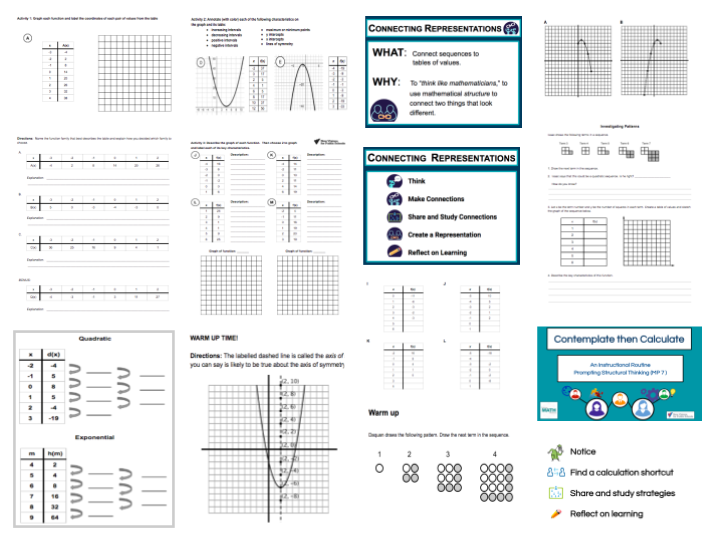Here are some questions that I ask myself whenever I read through a mathematics curriculum:
• Does this curriculum assume that children will forget ideas over time?
• Does this curriculum provide instructional supports that increase the odds that all children have access to it?
• Does the curriculum assume all students are capable of learning and doing interesting mathematics?
• Are the connections between different mathematical ideas made explicit, both for me as a teacher, and for students who will experience the curriculum?
• Is it possible, based on the license and format of the materials, for me to extend / adapt / modify the curriculum based on student need?
• Does the material make it easier for me to use formative assessment practices each day?
If the answer to all of these questions is not yes, I don’t want to use that curriculum. A curriculum which is no more than a collection of tasks is no more useful to me than my ability to search for resources in Google.

What other questions do you ask yourself when reviewing curriculum?
Dylan Kane says:
Some other things that come to mind:
There is evidence that the curriculum writers have been thoughtful in what to include and what not to include, focusing on essential mathematical ideas that build toward larger understandings.
The curriculum has been sequenced in a way that assumes students need to engage with key ideas spaced over time in different contexts.
The curriculum includes activities, problems, and structures that help students experience curiosity and wonder in math classrooms.
I’m less picky as a personal consumer of curriculum, and definitely use lots of resources that don’t meet all of your criteria or mine. That said, I think that your guidelines are really useful to think about curriculum that helps teachers improve. I know I have grown as a teacher using resources that help me to be more thoughtful about my everyday practice and help me focus on student thinking and reasoning rather than what I’m going to do next.
October 14, 2017 — 6:02 pm
David Wees says:
Dylan,
I like your three additional points which I think complement the points I made well, but your more important point is that these are criteria to which to aspire, but may not actually be realistic. So therefore you go through other kinds of resources as well?
David
October 16, 2017 — 1:49 pm
Dylan Kane says:
Hi David,
I do use other kinds of resources, and I think the biggest difference is that they do less to help me grow as a teacher. The features you and I named are all features that help me to be more thoughtful in my pedagogy — to expand my repertoire of formative assessment strategies, improve my pedagogical content knowledge, help me approach every student with an asset orientation, allow me to learn about curriculum structure by adapting and modifying materials, and more.
Most resources that I use help me to plan class the next day, but do a lot less to make me a better teacher through all of the above.
October 16, 2017 — 6:49 pm